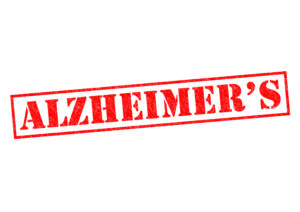Information About the Functional Assessment Rating
One of the ways that a person’s ability to do daily activities is evaluated is with the FAST. This is also known as the functional assessment rating. Usually, this assessment is given to track the progression of Alzheimer’s disease symptoms. However, it can also be used with dementia patients, as well. There are 7 main stages included in this scale. As a family caregiver for your elderly loved one, it may be beneficial to learn about the functional assessment rating.
Stage 1

Elder Care Charlotte, NC:Functional Assessment Rating
During stage 1, the patient will not have any functional deficits. This means the person does not have Alzheimer’s disease or dementia. Their brain is functioning as it should.
Stage 2
Stage 2 is where the normal elderly people are. They do have some age-related memory loss. People who are in this stage may also have some functional declines. However, these are mostly related to age and don’t necessarily signify Alzheimer’s disease or dementia. Most of these people can take care of themselves with the help of elder care providers.
Stage 3
In stage 3, the person is in early dementia or Alzheimer’s disease. They begin having decreased abilities to complete certain functions. Stage 3 patients can’t remember some things. Usually, family caregivers and elder care providers can notice symptoms during stage 3. However, they may be tossed aside as normal age-related changes.
Stage 4
In stage 4, the person has mild Alzheimer’s disease or dementia. If your elderly loved one’s doctor diagnoses them during stage 4, they will have many impaired abilities. Your elderly loved one won’t able to properly handle their finances, perform complex tasks, or make plans by themselves. They may need help from you and elder care providers during this stage and later on with their disease.
Stage 5
Moderate Alzheimer’s disease or dementia are diagnosed during this stage. If your elderly loved one has stage 5, they will likely need help every day. Some of the things your elderly loved one may need help with are deciding which clothes to wear and cooking. This might be too much for you to handle on your own, but you can hire elder care providers to help more often.
Stage 6
In stage 6, people are diagnosed with moderately severe Alzheimer’s disease or dementia. In this stage, your elderly loved one will need help with even more tasks. Some of the things they will need help with include bathing, using the toilet, and getting dressed.
Stage 7
The final stage is when severe Alzheimer’s disease or dementia is diagnosed. In this stage, your elderly loved one will have limited speech, can’t walk, can’t sit without assistance, can’t smile, and can’t hold their head on their own.
Conclusion
As you can see, when the stages progress, the symptoms worsen. From stage 3 and later, it may be a good idea to hire elder care providers for your elderly loved one. This way, the elder care providers can help you to care for your loved one.
If you or an aging loved one are considering in elder care in Charlotte, NC, please call the professional staff at Caring at Heart today at (704) 379-7510. Serving Charlotte, Statesville, Ballantyne, Mooresville, Huntersville, Matthews, Concord, Gastonia, Pineville and Indian Trail
Sources
https://pubmed.ncbi.nlm.nih.gov/20847407/#:~:text=Functional%20Assessment%20Staging%20(FAST)%20was,of%20Alzheimer’s%20disease%20(AD).
- Seven Ways to Get a Better Night’s Sleep - December 22, 2022
- What Services Are Offered by Elder Care Aides? - December 14, 2022
- Post-Hospital Care Helps Seniors Recover At Home - November 21, 2022

